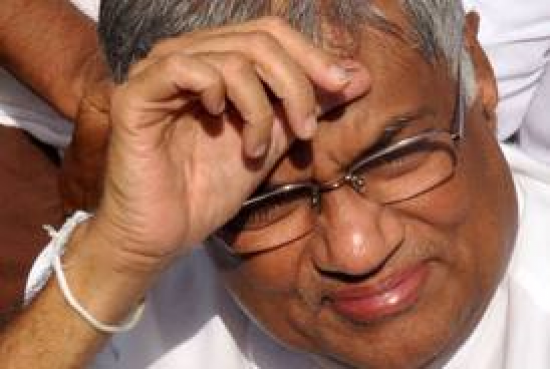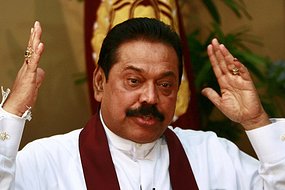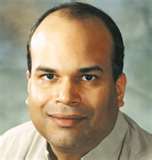BATTLE FOR COLOMBO: LG elections nothing but disillusionment whatever the outcome
Sri Lanka is fast becoming a land of elections. Since the Presidential Elections held in January, 2010, the people of this country have gone to the polls on three different occasions, making the forthcoming elections for the remaining municipalities and other local bodies the fourth within the last twenty four months. It is extremely uncommon for a developing country especially when the civil unrest and war situation that prevailed in the country during the last thirty years is taken into consideration.
What manner of elections?
However, the barometer that measures the wisdom of the constituency is not the number of times the voter visits the polling station
during a given period of time, but rather the manner in which the elections are conducted, how the count is held and the character and intelligence of the elected. Researchers and historians will take these subjective measures as their stock in trade for their interpretations and judgments and it is in that context, the country’s advancement in the sphere of democracy and freedom shall be determined. The country’s political history crossed a critical threshold after the end of the armed conflict with the LTTE and its leader Pirapaharan. The positive effects of the end of the conflict are far too great in numbers as well as in character for the average voter to ignore.
Days of the suicide bomber are gone
Parents no longer had to wait in anguish until their children came home; the village damsel’s torment stopped for she knew that her husband was no longer on a battlefield but in a safe barrack doing guard duty; the three- wheeler driver was assured of his daily earnings, whatever it be and that he would not have to drive over a parcel bomb, even politicians were relieved of their distress for they knew that the days of the suicide bomber were in the past.
This very feeling of relief felt among the masses, brought not only a good impression about the President and the government at large, it brought votes for the government candidates. The President’s personal image reached sky-high and his public relations gurus had worked very hard to project an image of “clean winner”. This was translated into massive vote conversions, from the UNP to the government party, especially at the village level and among women folk.
Galaxy of government candidates pushed into office
Proof was in the subsequent elections, from Parliamentary to Provincial Councils to Pradesheeya Sabhas. Election after election pushed a galaxy of government party candidates into office in Parliament and various local bodies. One salient feature of these election campaigns was the amount of money that was at the disposal of the government party candidates, turning the campaigns into well-oiled machines with clockwork precision. The campaign workers were hauled into offices in luxury buses from their respective homes, meals were issued on time; the offices functioned like assembly-line factories. The expected results were harvested on Election Day.
Against this formidable force of the government Party, the Opposition looked almost hopeless; firstly they lacked the funds, secondly, mainly due to the Proportional Representation (PR) system, they had got used to fighting for a chunk of vote block within the same party instead of trying to win new votes, thirdly they suffered from a very serious dearth of grassroot organizations which was mainly due to the fact that they served in the Opposition for so long a period that they had forgotten the value of organizations at the level of the very grassroot. To cap it all, the United National Party, the main alternative to the UPFA, was embroiled in a severe inner turmoil where its leader was openly challenged, not on matters of party policy or principles, but on his very leadership.
With a limping opposition how will govt respond in Colombo?
In this light, the results of the elections at many municipalities appear to be a foregone conclusion except in the case of one-Colombo Municipality. When one dares to forecast the results of the forthcoming Colombo Municipality elections, one has to do that in the context of the above scenario. Against this backdrop of a limping opposition, how are Mahinda Rajapakse and his UPFA candidates going to respond to an election-weary constituency? If one takes into account how they did during the last few elections, the answer is obvious. The government party will pour in an enormous amount of money, the likes of which would be embarrassing to the opponents as well as themselves. But they don’t care. Vulgar display of wealth is taken for granted in the realm of current political culture.
The UNP voter is a fast disappearing species
The UNP voter will have to be motivated to go to the polls and this needs special attention from the campaign managers, if there are any still in their camp. The most recent local government elections prove that the UNP voter is a fast disappearing species. The United National party seems to be taking the same defeatist-line that the SLFP followed in the wake of the 1977 election defeat. The average UNPer does not seem to be keen on going to the polling station, due to many reasons, amongst which are the leadership issues, the apparently flawed selection of candidates and the lack of properly co-ordinated campaigns etc.
Mahinda’s election machine is well-oiled
On top of this is sitting Mahinda Rajapakse’s election machine well-oiled and fine-tuned. In such challenging circumstances, the task ahead for the UNP is almost impossible except in Colombo. The redeeming feature for the UNP in the Colombo Municipality is it is so
overwhelmingly green. In the last general Elections the Party won all seats- Colombo Central, North, West and East and Borella. The voting percentages were UNP: 54% to UPFA: 29% while DNA obtained 7% largely due to fact that General Fonseka contested on the DNA ticket.
UNP has fielded the worst candidate in Colombo
Then you come to the candidates. In the writer’s view, the UNP has fielded the worst candidate for Colombo whereas the UPFA has come out with their best. Although Milinda Moragoda has not achieved anything to write home about in politics, he has managed to portray an image of a clean man (how clean is another question), a man above the fray and that of a go-getter. All politics is theatre. Milinda seems to have created the right image for that theatre. However, all the votes he did obtain were when he contested on the UNP ticket. In fact he was voted number 2 in the 2001 general elections on the UNP ticket, after Ranil Wickramasinghe. When he contested on the UPFA ticket in the last Parliamentary elections in 2010 he was placed way back in the 15th slot with a mere 5% of the total UPFA vote, despite the fact that the UPFA won the Colombo district on a 51% to 36% margin.
Voter not willing to vote for candidate at expense of party
On the other hand, the UNP Mayoral candidate Muzammil secured just 10% of the UNP bank of votes and was placed 9th in the final list. In other words, Muzammil could not get into Parliament in a situation where the UNP lost and Milinda could not get in when the
UPFA won; the bottom-line being that the voter was not ready to vote for the candidate at the expense of the “Party”. This scenario does not help either of the candidates.
Back to square one
Furthermore, it has been observed that since Presidential Elections in 2010, the voting percentage has been dropping 5% to 15% over the same period. The UNP argues that it was their chunk that stays at home on polling day; this might be true and I am fairly sure that at least 60% to 70% of the ‘no-show’ is from the UNP ranks.
In such a milieu of varying scenarios let us examine the possible outcomes one by one:
Scenario 1
The status quo remains as far as Colombo City is concerned. The UNP wins comfortably, retaining the voter base in tact despite Muzammil and Ranil and others. That’s a dream situation for Ranil Wickramasinghe.
On a scale of 1-10, 10 being the most likely and I being the least, my score would be 5 ½.
Scenario 2
The government and the Rajapakses go all out to win Colombo. They spend lavishly, hold their usual “dansalas” at Temple Trees, character-assassinate Muzammil, block the sure UNP votes, especially in Colombo East where there is a sizeable number of Tamils and Colombo West, which electorate is the home of “the rich and famous”. Even then, for the UPFA to secure a victory in the Municipality area, it has to do two fundamental campaigns:
(1) increase their numbers and (2) block the UNP votes. The latter, they might succeed in doing but however, the former would be a very tall order. Yet, in case the Tamil voters decide to vote with Mano Ganeshan thereby depriving the UNP of that vote and SLMC takes a chunk out of the traditional Muslim UNP block vote in Colombo, the UNP will have to depend on getting more than 50% of the Sinhalese votes. This is very unlikely in the context of the gullibility that they have shown in successive elections over the last couple of decades. They, the Sinhala voter in general will be lured by various election promises and goodies that will be thrown during the campaign. This scenario speaks more of a stalemate than anything else.
My score would be 4 ½.
Scenario 3
The same players play the same game as in scenario 2, however, the UNP voter feels for his/her party and decides that enough is enough, and come what may, goes to the polling booth despites his/her likes and dislikes of the candidate and places the cross against

Given the turmoil that Ranil finds himself in even a marginal win for the UNP could be portrayed as a massive come-back for the United National Party
the elephant. For this scenario to take place, the UPFA campaign has to descend to a very low level of mud-slinging and bribing and overt indulgence in extra-parliamentary tactics which need to drive the UNP voter so crazy that then he decides to go to the polling booth.
In my scorebook, this scenario will not score more than 4.
Scenario 4
In this scenario nothing spectacular happens. A lackadaisical campaign might result in a marginal win for Muzammil and the UNP. Given the turmoil that Ranil finds himself in even a marginal win for the UNP could be portrayed as a massive come-back for the United National Party. If that happens and with all other local bodies going the UFPA way, Ranil Wickramasinghe will still have some breathing space as far as his leadership is concerned. But the million dollar question is: will Mahinda Rajapakse allow the UNP to win Colombo? His recent demeanor and the strong backing he has in the country do not point the finger that way.
Score: 4 ½
So reader, roll the dice, make the call, heads you lose, tails I win!



